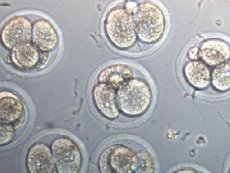Medical expert of the article
New publications
Scientists have improved the effectiveness of artificial insemination
Last reviewed: 30.06.2025

All iLive content is medically reviewed or fact checked to ensure as much factual accuracy as possible.
We have strict sourcing guidelines and only link to reputable media sites, academic research institutions and, whenever possible, medically peer reviewed studies. Note that the numbers in parentheses ([1], [2], etc.) are clickable links to these studies.
If you feel that any of our content is inaccurate, out-of-date, or otherwise questionable, please select it and press Ctrl + Enter.

Australian and Danish scientists have improved the technology of in vitro fertilization (IVF), increasing its efficiency by tens of percent, ScienceDaily reports. It is expected that the improvement will enter clinical practice as early as 2011. Researchers from the University of Adelaide and the Danish company ORIGIO a/s have conducted the largest clinical study to date of nutrient media for embryos obtained as a result of IVF. This work has demonstrated the key importance of natural growth factors for the successful implantation of the embryo in the uterus. The product EmbryoGen, created as a result of the study, contains granulocyte-macrophage colony-stimulating factor (GM-CSF). This protein from the cytokine group ensures the maturation of blood cells in the bone marrow. In addition, it ensures the embryo's resistance to damaging effects in the early implantation period. Clinical trials of EmbryoGen involving 1,319 patients undergoing IVF have shown that its use increases the success of embryo implantation, recorded at the 12th week of development, by an average of 20 percent. Growing embryos on this medium was most effective in women whose previous pregnancies were terminated in the first trimester. In this group of patients, the use of EmbryoGen increased the likelihood of successful implantation by 40 percent. According to the head of the study, Professor Sarah Robertson from Adelaide, work on improving IVF took 20 years. Scientists expect that in addition to influencing embryo implantation, EmbryoGen will be able to normalize the weight of the fetus at birth (usually newborns born with the help of IVF weigh less than those conceived naturally). Clinical data confirming or refuting these hopes will be obtained within a year. EmbryoGen is expected to go on sale in 2011.


 [
[